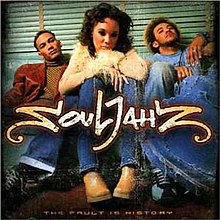몽홀리쿠스
Astragalus mongholicus| 몽홀리쿠스 | |
|---|---|
 | |
| 과학적 분류 | |
| 왕국: | 플랜태 |
| 클래드: | 기관식물 |
| 클래드: | 안지오스파름속 |
| 클래드: | 에우디코츠 |
| 클래드: | 장미과 |
| 순서: | 파발레스 |
| 패밀리: | 파바과 |
| 하위 패밀리: | 파보이데아과 |
| 속: | 아스트라갈루스 |
| 종: | 몽홀리쿠스 |
| 이항명 | |
| 몽홀리쿠스 붕게[1] | |
| 동의어[1] | |
| |
아스트라갈루스 몽홀리쿠스(Astagalus mongholicus) 또는 [2]아스트라갈루스 막홀리쿠스([1]Astagalus propincus)는 몽골에서 흔히 몽골 밀크벳치(Milkvetch)로 알려진 아스트라갈루스 프로핀쿠스(Astagalus propincus)와 아스트라갈루스 막홀리쿠스(Astagalus membranacaceus)[3]를 포함한 동의어로, 몽골의 한 식물로, 몽골의 일종으로, 파브과에 속하는 식물입니다.그것은 몽골 전통 의학에 [4]사용되는 50가지 기본 약초 중 하나입니다.그것은 다년생 식물이고 [5]위협받는 것으로 분류되지 않습니다.
분배
몽홀리쿠스는 온대 아시아에 널리 분포하며, 카자흐스탄, 시베리아에서 러시아 극동, 몽골, 중국 [1]서부와 북부에서 발견됩니다.
허브주의
몽홀리쿠스는 전통적인 중국 의학 (TCM)[6]에 사용됩니다. 몽홀리쿠스는 [7]계절성 알레르기 비염 치료에 사용되는 식품 보충제인 렉트라날의 성분입니다. 비록 그 [8]효과에 대한 제한된 증거가 있습니다.
화학
뿌리의 화학 성분(Radix Astragali)은 다당류 및 트리테르페노이드(예: 아스트라갈로시드),[9] 이소플라본(쿠마타케닌, 칼리코신, 포르모네틴) 및 그 글리코사이드와 [10]말론산을 포함합니다.그것은 사포닌 시클로아스트라게놀을 함유하고 있습니다.
독성학
몇몇 다른 종의 아스트라갈루스는 인돌리진 알칼로이드, 지방족 니트로 화합물 및 축적된 [11]셀레늄으로 인해 가축에 심각한 중독을 일으키는 것으로 알려져 있지만, 이러한 성분은 식이 보충제 및 TCM [12]제제에 사용되는 아스트라갈루스 몽홀리쿠스에서 검출되지 않았습니다.
보상여부
A. 몽홀리쿠스는 다음의 공식 약전에 (A. propinquus)로 나열되어 있습니다.
- 일본 약전[13]
참고 항목
참고 사항 및 참조 사항
- ^ a b c d "Astragalus mongholicus Bunge". Plants of the World Online. Royal Botanic Gardens, Kew. Retrieved 2023-04-06.
- ^ English Names for Korean Native Plants (PDF). Pocheon: Korea National Arboretum. 2015. p. 368. ISBN 978-89-97450-98-5. Archived from the original (PDF) on 25 May 2017. Retrieved 26 January 2017 – via Korea Forest Service.
- ^ Joe Hing Kwok Chu. "Huang qi". Complementary and Alternative Healing University. Retrieved 2012-02-27.
- ^ "Astragalus membranaceus – Moench". Plants for a Future.
- ^ "Astragalus propinquus Schischkin". LegumeWeb. International Legume Database & Information Service. 2005-11-01. Retrieved 2012-02-27.
- ^ Block, Keith I.; Mead, Mark N. (1 September 2003). "Immune System Effects of Echinacea, Ginseng, and Astragalus: A Review". Integrative Cancer Therapies. 2 (3): 247–267. doi:10.1177/1534735403256419. PMID 15035888.
- ^ Matkovic Z, Zivkovic V, Korica M, Plavec D, Pecanic S, Tudoric N (2010). "Efficacy and safety of Astragalus membranaceus in the treatment of patients with seasonal allergic rhinitis". Phytother Res. 24 (2): 175–81. doi:10.1002/ptr.2877. PMID 19504468. S2CID 46201817.
- ^ Guo, Ruoling; Pittler, Max H.; Ernst, Edzard (December 2007). "Herbal medicines for the treatment of allergic rhinitis: a systematic review". Annals of Allergy, Asthma & Immunology. 99 (6): 483–495. doi:10.1016/S1081-1206(10)60375-4. PMID 18219828.
- ^ Xu, Q.; Ma, X.; Liang, X. (2007). "Determination of Astragalosides in the Roots of Astragalus spp. Using Liquid Chromatography Tandem Atmospheric Pressure Chemical Ionization Mass Spectrometry". Phytochemical Analysis. 18 (5): 419–427. doi:10.1002/pca.997. PMID 17624885.
- ^ Lin, L. Z.; He, X. G.; Lindenmaier, M.; Nolan, G.; Yang, J.; Cleary, M.; Qiu, S. X.; Cordell, G. A. (2000). "Liquid Chromatography-Electrospray Ionization Mass Spectrometry Study of the Flavonoids of the Roots of Astragalus mongholicus and A. membranaceus". Journal of Chromatography A. 876 (1–2): 87–95. doi:10.1016/S0021-9673(00)00149-7. PMID 10823504.
- ^ Rios, J. L.; Waterman, P. G. (1997). "A review of the pharmacology and toxicology of Astragalus". Phytotherapy Research. 11 (6): 411–418. doi:10.1002/(SICI)1099-1573(199709)11:6<411::AID-PTR132>3.0.CO;2-6. S2CID 84850794.
- ^ "Astragalus". WebMD.
- ^ Japanese Pharmacopoeia (PDF) (15th ed.). Archived from the original (PDF) on 2011-07-22.
외부 링크
- "Astragalus membranaceus – Moench". Plants for a Future.
- "Astragalus membranaceus (FISCH. EX LINK) BUNGE – Fabaceae". Dr. Duke's Phytochemical and Ethnobotanical Databases. ARS / GRIN. Archived from the original on 2004-11-15.


